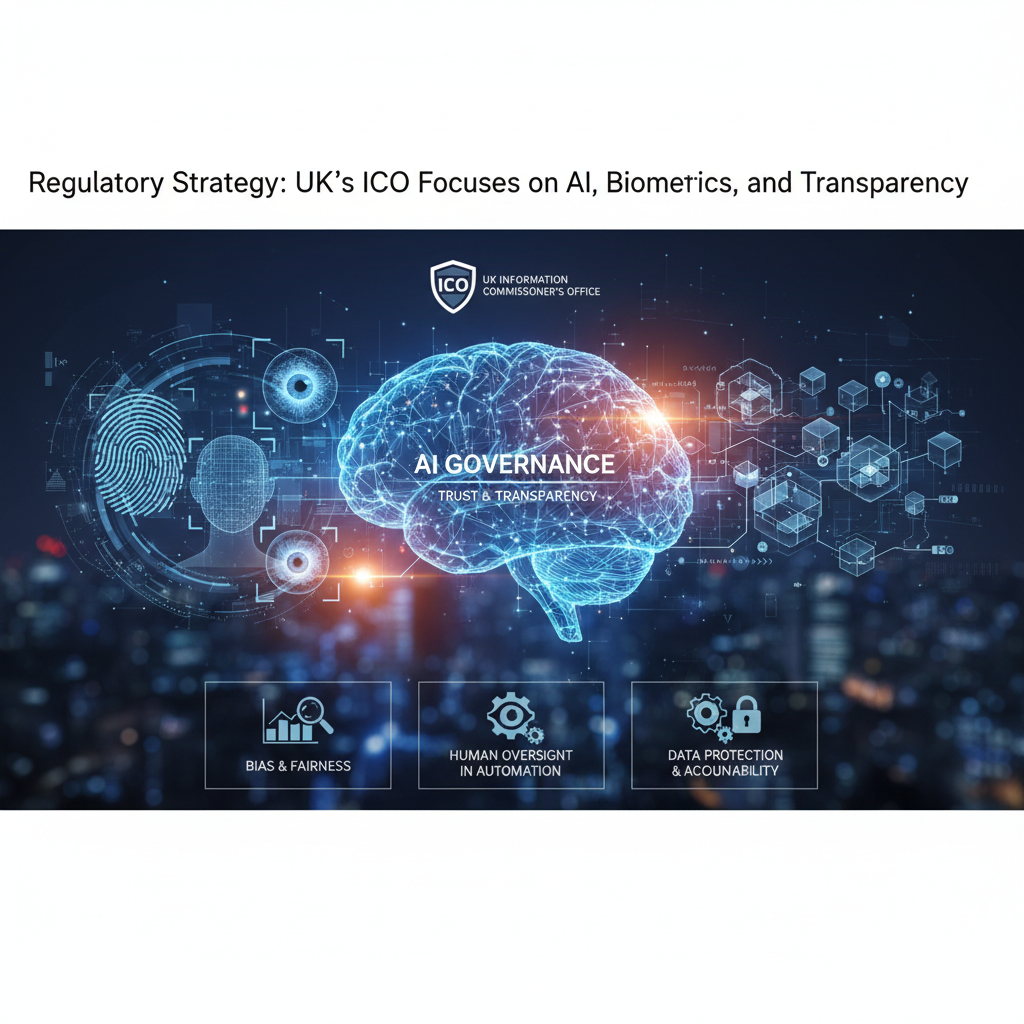The United Kingdom’s Information Commissioner’s Office (ICO) has unveiled a forward-looking plan titled “Preventing harm, promoting trust: our AI and biometrics strategy.” The document outlines how the ICO intends to balance innovation with accountability in an era where artificial intelligence, biometric data, and algorithmic decision-making are reshaping industries — from finance to digital identity and blockchain.
A Strategic Shift in Oversight
This strategy represents more than an update in enforcement priorities; it reflects a shift in the philosophy of regulation. Rather than simply reacting to data misuse or security breaches, the ICO aims to prevent harm before it occurs and foster public trust in emerging technologies.
Key focus areas include:
-
AI governance and transparency: Companies must be able to explain how AI systems make decisions, especially when these affect individuals’ rights.
-
Automated decision-making: Updated guidance emphasizes human oversight in critical decisions, ensuring that automation enhances, not replaces, accountability.
-
Bias and fairness: The ICO calls for measurable frameworks to detect and mitigate algorithmic bias, preventing discrimination in sectors such as recruitment, finance, and law enforcement.
Implications for the Blockchain and Digital Asset Sectors
While the ICO’s strategy doesn’t directly reference tokenization or decentralized systems, its implications ripple through any ecosystem using AI and data analytics. In the world of digital assets, DeFi, and blockchain-powered identity systems, transparency and auditability have long been core principles — yet the integration of AI introduces new complexity.
For example, AI-driven trading bots, compliance systems, or biometric-based identity solutions on blockchain platforms now fall under closer scrutiny. Projects leveraging these technologies will need to demonstrate fairness, explainability, and data protection compliance — not only under the UK GDPR but in line with the ICO’s evolving enforcement approach.
Building Trust in a Hybrid Future
The ICO’s new framework can be seen as a blueprint for trust-centric innovation. It challenges developers, investors, and regulators alike to build systems that are not only efficient but also ethically sound. In a future where AI and blockchain increasingly converge — from smart contracts that learn, to autonomous compliance protocols — transparency is no longer optional; it’s foundational.
By addressing bias, promoting transparency, and enforcing accountability, the ICO is setting a global precedent for responsible AI governance. The message is clear: technology can only thrive sustainably when it earns the public’s trust.




